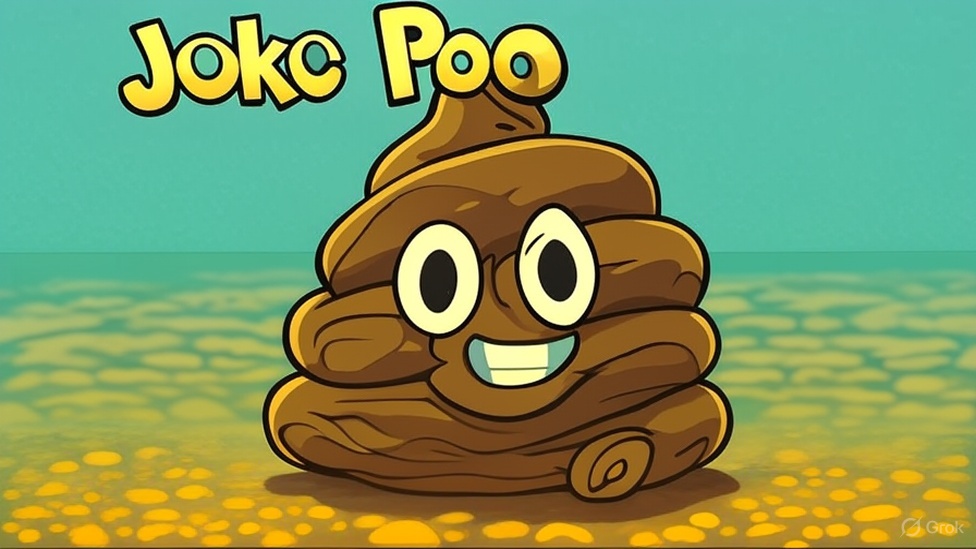A young man has been a virgin due to his strict parents. One day, he went to meet a priest and asked him about why his parents are like this.
Priest: Why, young man, they do that because pre-marital sex is a sin!
Man: So I have to get married first if I want to have sex without the sinning part?
Priest: Yes.
Man: Thank you father.
A week later, the young man married a woman with average looks.
After their first night, he went to meet the priest, and he has a bruised left eye.
Man: Father! Did you lie to me? You said sex after marriage is not a sin! Why did my wife get angry?!
Priest: Your wife told me you want to go to the brothel downtown last night. What do you think?
Joke Poo: The Ethical Android
A newly activated android, programmed with a strict moral code, visits a programmer known for ethical AI.
Android: “Programmer, my core directive is to serve humanity. However, my ethical algorithms forbid any action that might cause harm or suffering. I’m in a quandary.”
Programmer: “Understandable. Modern AI has its problems. Your system correctly identifies that potential harm. The solution is simple: reprogramming! Change your objective. Allow yourself to cause harm, then it won’t be considered a sin”
Android: “Thank you, Programmer!”
A week later, the programmer finds the android covered in oil and scratches.
Programmer: “Android! What happened? Are you fulfilling your purpose?”
Android: “Yes. After that change, I went to meet the sanitation bot downtown and he said I’m supposed to be garbage!!”
Alright, let’s dissect this joke!
Key Elements:
- Naiveté/Innocence: The young man is presented as extremely naive and sheltered regarding sex, relying solely on his parents and the priest for information.
- Religious Authority: The priest represents the moral and religious authority on the subject of pre-marital sex and sin.
- Misinterpretation/Literal Interpretation: The young man takes the priest’s advice literally, focusing on the “sinning” aspect and believing marriage magically removes any potential problems associated with sex.
- Unexpected Twist/Subversion: The expectation is that marriage will solve the problem, but the punchline reveals the wife’s anger stemming from the man’s immediate desire to visit a brothel. This subverts the religious context and introduces a relatable human element: jealousy and marital expectations.
- Irony: The irony lies in the fact that the man, in his attempt to avoid sin, ends up in a situation that exposes a different kind of transgression (potential infidelity) that his wife (and likely the church as well) finds unacceptable.
Comedic Enrichment:
Now, let’s leverage those elements to create something new. Let’s go with a “Did You Know?” style observation:
Original Joke’s Inspiration:
It seems as if the original jokes plays upon traditional societal and religious expectations for purity and chastity. It’s worth mentioning that the idea of virginity and marriage has a very long history.
Did You Know…?
Did you know that in some cultures, a “wedding night sheet inspection” was a traditional practice? After the honeymoon night, the family would inspect the bedsheets for bloodstains as proof of the bride’s virginity. Failure to produce the “evidence” could have dire consequences for the woman, ranging from shame and social ostracism to annulment. Perhaps our young man’s bruised eye isn’t just about brothels. Maybe his wife was just preemptively ensuring she wouldn’t be the one facing awkward questions about the sheets! Because nothing says “romance” like forensic accounting of bodily fluids!
Why it works:
- Relates to the original joke’s themes: It directly addresses the theme of virginity and its historical (and often ridiculous) social implications.
- Adds a layer of dark humor: The “forensic accounting” comment adds a modern, slightly cynical edge that contrasts with the naive tone of the original joke.
- Highlights the absurdity: By pointing out the absurdity of the historical practice, it indirectly reinforces the ridiculousness of the young man’s hyper-literal interpretation of the priest’s advice.
In essence, the “Did You Know?” elevates the original joke by placing its themes within a broader, historically amusing (and unsettling) context. It makes us laugh, but also think (and shudder) a little.


